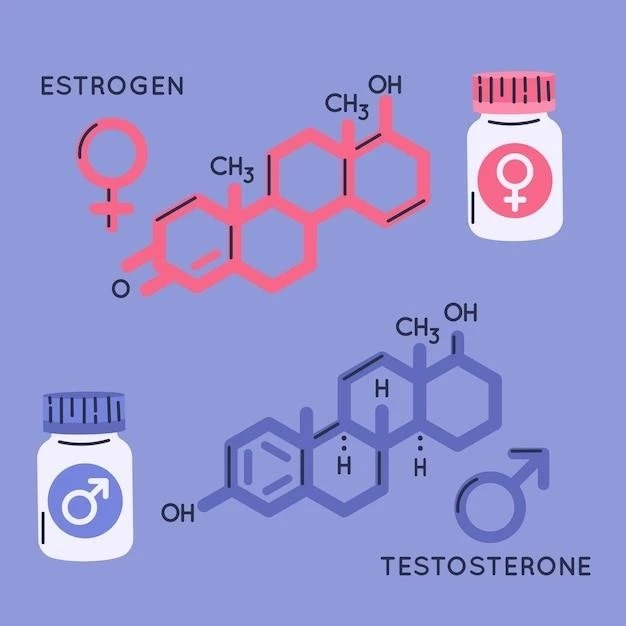Article Plan⁚ Disease ⏤ Methylenetetrahydrofolate Reductase Deficiency
Failure to thrive (failure to grow)
Methylenetetrahydrofolate reductase deficiency is the most common genetic cause of elevated serum levels of homocysteine (hyperhomocysteinemia). It is caused by genetic defects in MTHFR‚ which is an important enzyme in the methyl cycle.
The flavoenzyme methylenetetrahydrofolate reductase (MTHFR) catalyzes the conversion of 5‚10-methylenetetrahydrofolate to 5-methyltetrahydrofolate‚ which serves as a methyl group donor in the conversion of homocysteine to methionine.
Methylenetetrahydrofolate Reductase (MTHFR) Deficiency is the most common genetic cause of elevated levels of homocysteine in the plasma (hyperhomocysteinemia). The MTHFR enzyme plays an important role in processing amino acids‚ specifically‚ the conversion of homocysteine to methionine.
Introduction to Methylenetetrahydrofolate Reductase Deficiency

Methylenetetrahydrofolate reductase (MTHFR) deficiency is a genetic disorder that can occur at any age and is easily detected by increased homocysteinemia. The deficiency results from variations in the MTHFR gene‚ affecting the conversion of homocysteine to methionine. While common variants may have minimal effects‚ severe mutations are rare and can lead to significant health risks.
The MTHFR enzyme plays a crucial role in folate and homocysteine metabolism‚ influencing processes like methyl group donation. Genetic defects in MTHFR can cause hyperhomocysteinemia‚ impacting various bodily functions. Recognizing symptoms and understanding the impact of MTHFR deficiency on homocysteine levels is essential for diagnosis and management of this condition.
Research advancements have shed light on the complexities of MTHFR deficiencies and their association with health conditions like cancer. Understanding the genetic basis and clinical manifestations of MTHFR deficiency can guide treatment strategies and improve outcomes for affected individuals. Stay informed about the latest findings and future directions in managing this genetic disorder.
Genetic Basis of Methylenetetrahydrofolate Reductase Deficiency
Methylenetetrahydrofolate reductase (MTHFR) deficiency is primarily caused by genetic variations in the MTHFR gene‚ impacting the conversion of homocysteine to methionine. While common MTHFR variants may result in minimal symptoms‚ severe mutations are less common but can lead to significant health risks.
The MTHFR enzyme‚ crucial in folate and homocysteine metabolism‚ plays a vital role in methyl group donation processes. Variations in the MTHFR gene can result in hyperhomocysteinemia‚ affecting various bodily functions. Understanding the genetic underpinnings of MTHFR deficiency aids in recognizing symptoms and managing the condition effectively.
Advancements in research have expanded our knowledge of MTHFR deficiencies and their association with health conditions like cancer. Delving into the genetic basis and clinical implications of MTHFR deficiency can guide healthcare providers in developing appropriate treatment plans and improving outcomes for individuals affected by this genetic disorder.
Role of Methylenetetrahydrofolate Reductase Enzyme
The methylenetetrahydrofolate reductase (MTHFR) enzyme plays a crucial role in the metabolism of folate and homocysteine. It is responsible for converting 5‚10-methylenetetrahydrofolate to 5-methyltetrahydrofolate‚ a vital step in the conversion of homocysteine to methionine. Genetic defects in the MTHFR gene can lead to hyperhomocysteinemia‚ impacting various bodily functions.
Understanding the function of the MTHFR enzyme is essential in diagnosing and managing conditions related to MTHFR deficiency. The enzyme’s role in methyl group donation processes is critical for maintaining homocysteine levels within a healthy range. By recognizing the significance of MTHFR in folate metabolism‚ healthcare providers can address related health concerns more effectively.
Advancements in research have provided insights into the implications of MTHFR enzyme abnormalities‚ shedding light on how genetic variations can impact homocysteine levels. Stay informed about the latest developments in understanding the role of the MTHFR enzyme in health and disease to make well-informed decisions regarding diagnosis and treatment options.
Clinical Presentation and Symptoms
Methylenetetrahydrofolate reductase (MTHFR) deficiency can present with various clinical symptoms‚ ranging from mild to severe manifestations. In some cases‚ individuals with MTHFR deficiency may experience failure to thrive‚ growth delays‚ and neurological issues. Symptoms can include developmental delays‚ hypotonia‚ and feeding difficulties.
It’s crucial to recognize early signs of MTHFR deficiency‚ such as elevated homocysteine levels and low methionine levels‚ which can lead to anemia and other health complications. This genetic disorder may also manifest with focal epilepsy‚ thrombotic events‚ and a complex clinical picture‚ especially in adult-onset forms.
Understanding the diverse range of symptoms associated with MTHFR deficiency is essential for timely diagnosis and appropriate management. If you or a loved one experience unexplained developmental delays‚ neurological symptoms‚ or thrombotic events‚ consult with a healthcare professional for further evaluation and genetic testing to assess the presence of MTHFR deficiency.
Diagnosis of Methylenetetrahydrofolate Reductase Deficiency
Diagnosing Methylenetetrahydrofolate reductase (MTHFR) deficiency typically involves assessing homocysteine levels‚ methionine levels‚ and genetic testing for MTHFR gene variations. Elevated homocysteine and reduced methionine levels may indicate the presence of MTHFR deficiency.
Genetic testing can identify specific variants in the MTHFR gene that affect enzyme activity. Healthcare providers may also consider symptoms like developmental delays‚ neurological issues‚ and thrombotic events in the diagnostic process. Working closely with a medical professional can help confirm a diagnosis of MTHFR deficiency and determine appropriate management strategies.
Keep in mind that early detection of MTHFR deficiency through comprehensive testing is crucial for timely intervention and personalized treatment planning. If you suspect MTHFR deficiency based on symptoms or family history‚ consult with a healthcare provider to explore diagnostic options and develop a tailored care plan.
Treatment Options for Methylenetetrahydrofolate Reductase Deficiency
The treatment for Methylenetetrahydrofolate reductase (MTHFR) deficiency aims to manage elevated homocysteine levels and address associated symptoms. In cases where the deficiency leads to significant health risks‚ healthcare providers may recommend supplementation with folate‚ B vitamins‚ and betaine to help regulate homocysteine levels.
Individuals with MTHFR deficiency may benefit from a personalized treatment plan that includes dietary modifications to ensure adequate intake of essential nutrients. Monitoring homocysteine levels regularly can help gauge the effectiveness of treatment and guide adjustments as needed to optimize health outcomes.
Collaborating with healthcare professionals knowledgeable about MTHFR deficiency is essential to tailor treatment strategies to individual needs. These may include lifestyle changes‚ dietary adjustments‚ and specific vitamin supplementation to support overall well-being and manage symptoms associated with MTHFR deficiency.
Impact of MTHFR Gene Variants on Homocysteine Levels
MTHFR gene variants play a significant role in influencing homocysteine levels within the body. These genetic variations can impact the function of the MTHFR enzyme‚ leading to alterations in homocysteine metabolism and potential hyperhomocysteinemia. Understanding the impact of MTHFR gene variants on homocysteine levels is crucial in assessing the risk of associated health conditions.

Individuals with specific MTHFR gene variants may have an increased predisposition to elevated homocysteine levels‚ which can contribute to various health challenges. Monitoring homocysteine levels and addressing any genetic predispositions through personalized healthcare approaches can help manage the impact of MTHFR gene variants on homocysteine levels and overall well-being.
As research continues to explore the connection between MTHFR gene variants and homocysteine levels‚ it is important to stay informed about how these genetic factors can influence individual health outcomes. Collaborating with healthcare providers knowledgeable about MTHFR gene variants can aid in developing tailored strategies to mitigate potential risks associated with altered homocysteine levels.
Association Between Methylenetetrahydrofolate Reductase Deficiency and Cancer
The association between Methylenetetrahydrofolate reductase (MTHFR) deficiency and cancer risk has been a subject of research interest due to the enzyme’s role in regulating homocysteine levels that influence processes implicated in cancer development. Genetic variants impacting MTHFR function have been linked to elevated homocysteine levels‚ which in turn may contribute to an increased risk of various cancers.
Studies have explored the relationship between MTHFR gene polymorphisms‚ hyperhomocysteinemia‚ and cancer susceptibility‚ particularly in conditions like pancreatic cancer. Understanding the potential connection between MTHFR deficiency and cancer can aid in assessing individual cancer risk profiles and implementing targeted prevention strategies.
Healthcare providers may consider genetic testing for MTHFR gene variants in individuals with a family history of cancer or those predisposed to elevated homocysteine levels. By recognizing the association between MTHFR deficiency and cancer‚ personalized screening and management plans can be developed to address cancer risks in affected individuals.
Epidemiology of Methylenetetrahydrofolate Reductase Deficiency
Methylenetetrahydrofolate reductase (MTHFR) deficiency is a widely studied genetic disorder‚ with over 200 reported cases worldwide across various age groups. The condition can present with a broad spectrum of clinical manifestations‚ and its severity often correlates with the degree of enzyme activity.
Clinical presentations of MTHFR deficiency can range from mild to severe‚ with pediatric cases showing developmental delays‚ hypotonia‚ and failure to thrive. The incidence of MTHFR deficiency varies among populations‚ with some countries reporting higher prevalence rates due to genetic factors that influence homocysteine metabolism.
Early diagnosis and management of MTHFR deficiency are crucial in mitigating adverse health consequences associated with elevated homocysteine levels. Collaborating with healthcare professionals familiar with the epidemiology of MTHFR deficiency can facilitate personalized care plans and interventions tailored to individual needs.
Complications Associated with Methylenetetrahydrofolate Reductase Deficiency
Methylenetetrahydrofolate reductase (MTHFR) deficiency can lead to various complications due to elevated homocysteine levels and impaired methionine metabolism. These complications may include an increased risk of cardiovascular diseases‚ such as thrombosis‚ due to hyperhomocysteinemia.
Individuals with MTHFR deficiency may also be predisposed to neurological issues‚ developmental delays‚ and cognitive impairments. Additionally‚ complications like anemia‚ pregnancy complications‚ and potentially an increased risk of certain cancers may arise from untreated MTHFR deficiency.
Proper management of MTHFR deficiency is crucial to prevent or minimize these complications. Healthcare providers may recommend dietary modifications‚ supplementation‚ and regular monitoring to address the risks associated with MTHFR deficiency and improve overall health outcomes.
Research Advances and Future Directions in Methylenetetrahydrofolate Reductase Deficiency
Research on Methylenetetrahydrofolate reductase (MTHFR) deficiency has made significant strides in better understanding the genetic and biochemical aspects of the condition. Recent studies have highlighted the intricate relationship between MTHFR gene variants‚ homocysteine levels‚ and associated health risks.
Future directions in MTHFR deficiency research aim to delve deeper into personalized treatment approaches‚ focusing on genetic counseling‚ targeted therapies‚ and nutritional interventions tailored to individual needs. Advancements in genetic testing methods offer opportunities for early detection and risk assessment‚ potentially leading to more effective management strategies.
By exploring the evolving landscape of MTHFR deficiency research‚ healthcare professionals can stay abreast of emerging trends and innovative therapies. Collaborating with research experts and keeping informed about recent breakthroughs in MTHFR deficiency can pave the way for novel diagnostic tools and therapeutic options to improve patient outcomes.
